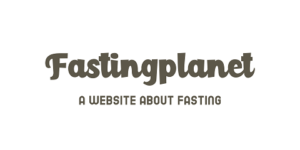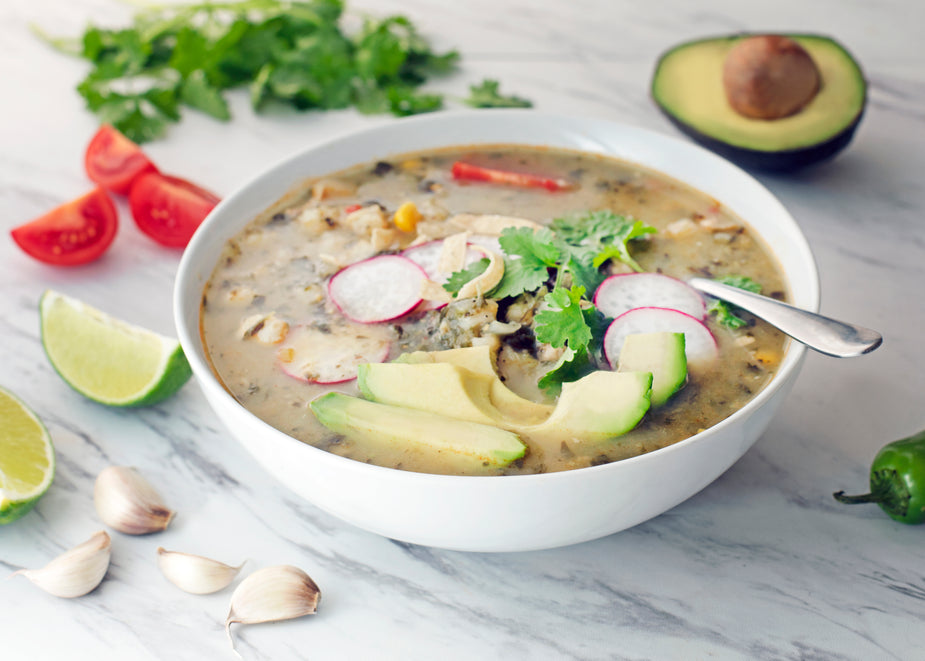Last Updated on April 12, 2024 by Fasting Planet
You’ve been dabbling in the vegetarian diet for a while now, but you feel like there’s more you can do for our planet and the animals that inhabit it. You’re ready to make the transition from vegetarianism to veganism. What kinds of side effects might you experience?
Here are some side effects, both good and bad, associated with the vegan diet:
- May lose weight
- Could develop nutrient deficiencies
- Lower your diabetes risk
- Might be more likely to be depressed
- Reduced risk of cancer
- May have a leaky gut
In this informative article, we’ll elaborate on each of these side effects in more detail, backing everything up with data. This information will help you decide whether going vegan is right for you at this time.
Let’s begin.
6 Good and Bad Side Effects of the Vegan Diet
May Lose Weight
We discussed the weight loss potential on a plant-based diet in our post about whether vegetarianism or veganism is better, so go back and give that article a read if you missed it. As we mentioned in the article, when you choose plant-based foods, you’re typically following a diet that’s lower in calories than one that includes red meat and animal products and byproducts.
However, you have to be careful not to fall into the junk food trap. Lots of unhealthy snack foods that you may have eaten before you started a plant-based diet happen to be vegan-friendly. They include Lindt chocolate bars, Lay’s Classic potato chips, Fritos, Famous Amos peanut butter sandwich cookies, Airheads, and original Oreos.
If your vegan diet is more nutritious, can you lose weight? The journal Diabetes, Metabolic Syndrome and Obesity: Targets and Therapy, in a 2020 publication, researched a collection of literature with more than 430 articles on the topics of vegans and weight loss and vegetarians and weight loss.
Here was their conclusion: “Overall, the results in this review suggest that a transition from an omnivore diet to a plant-based diet is associated with weight reduction in a majority of subjects, when applied in intervention studies. In multiple cases, there was a significant difference in weight loss between the plant-based group and the omnivore group, the former having reduced the most weight. This is consistent with findings from observational studies.”
Could Develop Nutrient Deficiencies
The plant-based diet is rich in calcium, vitamin C, zinc, and protein. Some nutritional areas where you may be lacking as a vegan are iron, vitamin B12, and omega-3 fatty acids such as alpha-linolenic acid or ALA, docosahexaenoic acid or DHA, and eicosapentaenoic acid or EPA.
Iron allows our red blood cells to receive oxygen, so it’s crucial to our survival. While vegans can get nonheme iron from plants, heme iron is only in meat and animal products. Your body absorbs heme iron much more easily, so it’s the recommended type of iron of the two.
Of all the nutrient deficiencies a vegan might develop, it’s unsurprising then that a lack of iron is one of the most common.
Vitamin B12 is another nutrient that plant food just doesn’t have. Vegans can make up for that with a B12 supplement or even by shopping vegan-friendly foods that are fortified with vitamin B12. Some examples are non-dairy milk, meat alternatives, cereal, and nutritional yeast.
Fish remains the best source of omega-3 fatty acids such as DHA and EPA, although plant-based foods do contain ALA. Your body then takes the ALA and makes it into DHA or EPA, but this isn’t the best method for staying on top of your omega-3s. You get more omega-3s by eating them or taking a supplement.
As a vegan, you must be on the lookout for the symptoms of nutrient deficiencies, some of which are very benign on the surface.
An iron deficiency can lead to cravings, coldness in the extremities, swollen mouth and/or tongue, damaged hair, dry skin, dizziness, headaches, heart palpitations, shortness of breath, pale skin, anxiety, and fatigue.
If you’re lacking vitamin B12, the symptoms look more like this: depression, shortness of breath, pins and needles feeling, smooth yet swollen tongue, coordination issues, wooziness, yellow or pale skin, anemia, fatigue, lethargy, and weakness.
Lower Diabetes Risk
Although most people assume that eating boatloads of sugar can lead to the onset of type 2 diabetes, sugar isn’t always the biggest culprit. Another of them is processed meats, including deli meats, hot dogs, bacon, and red meat. The nitrite and sodium in processed meats can affect your insulin sensitivity, or how your body processes insulin.
A diet that’s heavy in trans-fats and saturated fats, processed carbohydrates, and yes, sugary drinks and snacks can also cause diabetes.
Many studies have found that eating plant-based foods can reduce your diabetes risk. We’ve cited this Journal of Geriatric Cardiology study from 2017 elsewhere on the blog, but it’s worth bringing up again now.
The participants in the study were part of the Diabetes Prevention Program and much older, in their 60s. Of that group, 20 percent of them who had a lower risk of getting type 2 diabetes could attribute it to their diet changes. Their diabetes risk dropped steeply by 71 percent.
A 2019 WebMD article mentions a study from JAMA Internal Medicine from that same year about the effects of a plant-based diet on diabetes risk. According to the findings, those who ate “mostly” plant foods had a 23-percent lowered chance of getting diabetes.
By incorporating more vegan foods like whole grains, nuts, legumes, fruits, and vegetables into their diet, the diabetes risk decreased to 30 percent.
Might Be More Likely to Be Depressed
Although the vegan diet benefits your body in so many ways, the jury is out on whether a plant-based diet can help or worsen depression.
In 2018, Rush University Medical Center published a study stating that, in older adults, depression rates were lower in those who ate plant-based foods compared to the ones who consumed animal products and processed ingredients.
Yet this 2007 study that involved more than 14,000 women–semi-vegetarians and vegetarians alike–had some different findings. Only 20 percent of those who ate vegetarian diets some of the time or none of the time were depressed within the last year, whereas 30 percent of vegetarians were depressed in that same period. These women skewed younger.
This study from 2018 had 90,000 participants in all. Pescatarians, standard vegetarians, vegans, and meat-eaters were included. Those whose diets included the least food group variety (aka vegans) had a higher rate of depression. The study goes as far as to say that the depression rate was nearly three times higher in the participants who didn’t eat dairy, fish, poultry, or red meat.
Reduced Risk of Cancer
The connection between red meat, especially processed meat, and cancer is long-established. Your risk of colorectal and stomach cancers may go up, says the World Health Organization.
According to the WHO, processed meat is a Group 1 carcinogen, which means the evidence of its carcinogenic status is “sufficient.” Red meat is in Group 2, which refers to a potential carcinogen that needs more research but is still being viewed as a health threat.
Giving up red meat is certainly one way to reduce your cancer risk. A 2014 publication of the journal Cancer Epidemiology, Biomarkers & Prevention studied more than 2,900 cancer cases. The data found that the risk of cancer for vegetarians was lower, especially gastrointestinal tract cancers.
“When analyzing the association of specific vegetarian diet patterns, vegan diets showed statistically significant protection for overall cancer incidence…in both genders combined and for female-specific cancers,” the researchers wrote.
Further, the study says that even lacto-ovo-vegetarians–or those who eat dairy and eggs but no meat, poultry, or seafood–were at less risk of gastrointestinal cancers as well.
May Have a Leaky Gut
The last side effect of veganism that we want to discuss is the prevalence of leaky gut syndrome.
Doctors and medical experts are learning more about leaky gut syndrome all the time, including its causes. It’s believed that the intestinal lining becomes more permeable, sometimes to the point of being hyperpermeable. Gut junctions, which are supposed to limit what gets into the small intestine lining, could malfunction and make the intestinal lining more permeable.
When that happens, substances that are not supposed to be in the bloodstream can now easily enter. If you have leaky gut syndrome, you may experience symptoms like aches and pains, sensitivity to certain foods, cramps, gas, and bloating.
One’s diet can also contribute to leaky gut syndrome. With veganism being such a nutritious way of eating, it seems strange that it might lead to or worsen a leaky gut, but can it? Potentially.
Vegan food, especially legumes, contain what are called antinutrients. An antinutrient can prevent your body from undergoing standard nutrient absorption. In legumes, the antinutrients are lectin and phytates. Since antinutrients are only found in plant compounds, a non-vegan doesn’t have to worry about their rate of antinutrient ingestion.
Antinutrients, since they’re harder to process, may make the intestine even more permeable.
Some signs of leaky gut syndrome besides those mentioned above include memory loss, headaches, anxiety, depression, skin breakouts and rashes, acid reflux, and fatigue. If you believe you have leaky gut, you may want to speak to your doctor or nutritionist about changing your diet.
Conclusion
Veganism is a plant-based diet that eschews animal products and byproducts, including meat, poultry, fish, shellfish, seafood, honey, eggs, and dairy. Positively, going vegan is associated with lower risks of some cancers and diabetes. You may also find it easier to lose weight on a vegan diet.
The negative side effects include potential depression, risk of nutrient deficiencies, and developing or worsening leaky gut syndrome.
Before deciding if veganism is right for you, we highly recommend you reread this article and weigh the pros and cons. Talk to your doctor too. Some vegans never experience the negative side effects while others do.
Above all, make sure your choice is healthful in as many ways as possible. Best of luck!

